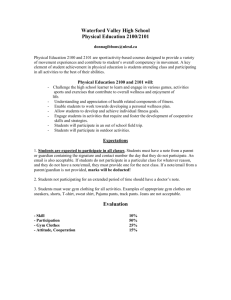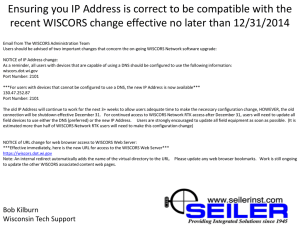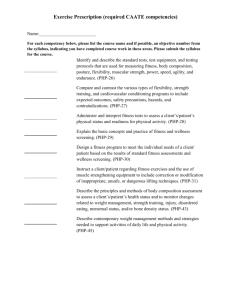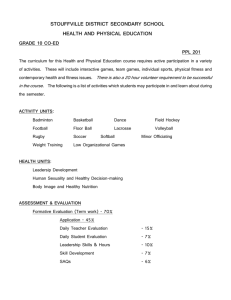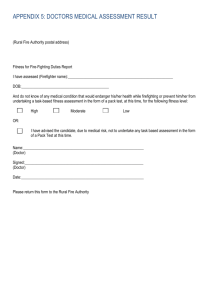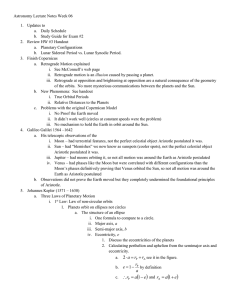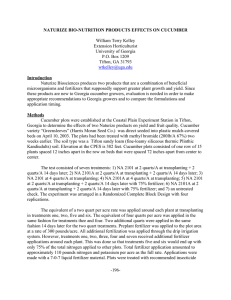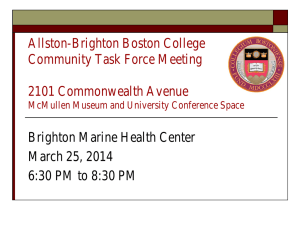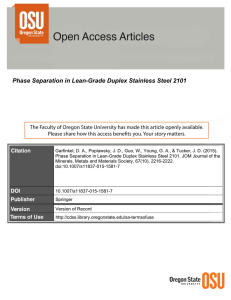Physical Education 2101
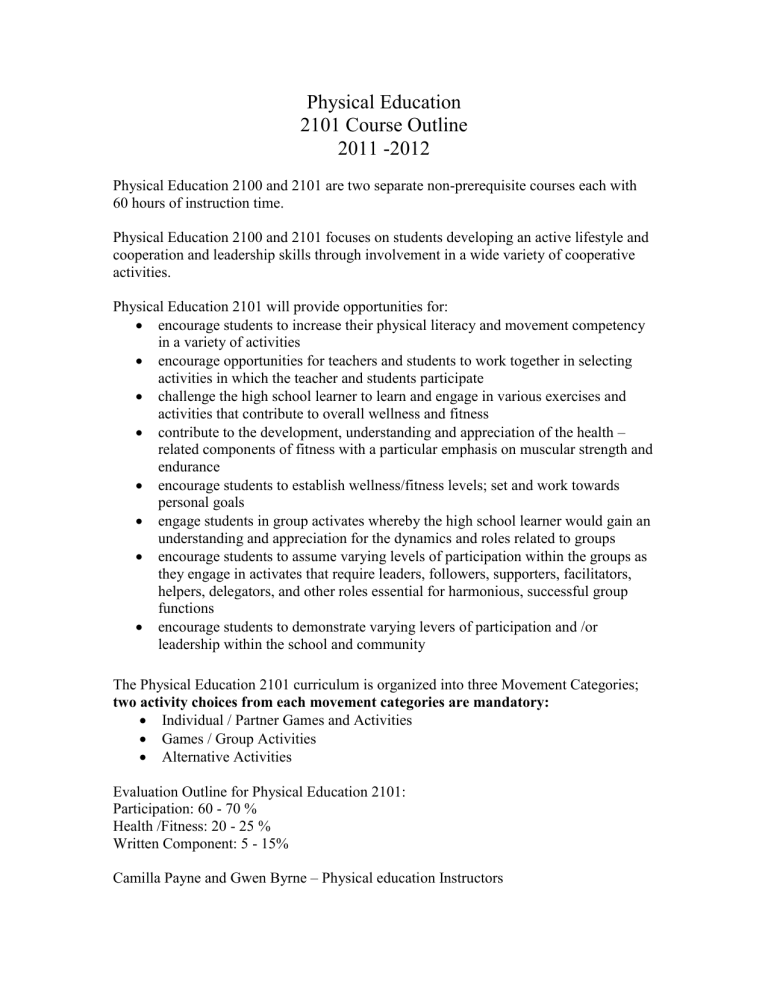
Physical Education
2101 Course Outline
2011 -2012
Physical Education 2100 and 2101 are two separate non-prerequisite courses each with
60 hours of instruction time.
Physical Education 2100 and 2101 focuses on students developing an active lifestyle and cooperation and leadership skills through involvement in a wide variety of cooperative activities.
Physical Education 2101 will provide opportunities for:
encourage students to increase their physical literacy and movement competency in a variety of activities
encourage opportunities for teachers and students to work together in selecting activities in which the teacher and students participate
challenge the high school learner to learn and engage in various exercises and activities that contribute to overall wellness and fitness
contribute to the development, understanding and appreciation of the health – related components of fitness with a particular emphasis on muscular strength and endurance
encourage students to establish wellness/fitness levels; set and work towards personal goals
engage students in group activates whereby the high school learner would gain an understanding and appreciation for the dynamics and roles related to groups
encourage students to assume varying levels of participation within the groups as they engage in activates that require leaders, followers, supporters, facilitators, helpers, delegators, and other roles essential for harmonious, successful group functions
encourage students to demonstrate varying levers of participation and /or leadership within the school and community
The Physical Education 2101 curriculum is organized into three Movement Categories; two activity choices from each movement categories are mandatory:
Individual / Partner Games and Activities
Games / Group Activities
Alternative Activities
Evaluation Outline for Physical Education 2101:
Participation: 60 - 70 %
Health /Fitness: 20 - 25 %
Written Component: 5 - 15%
Camilla Payne and Gwen Byrne – Physical education Instructors
